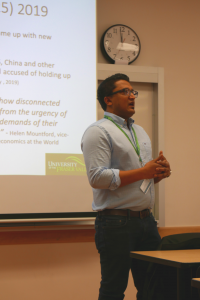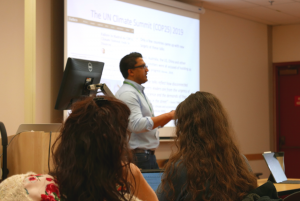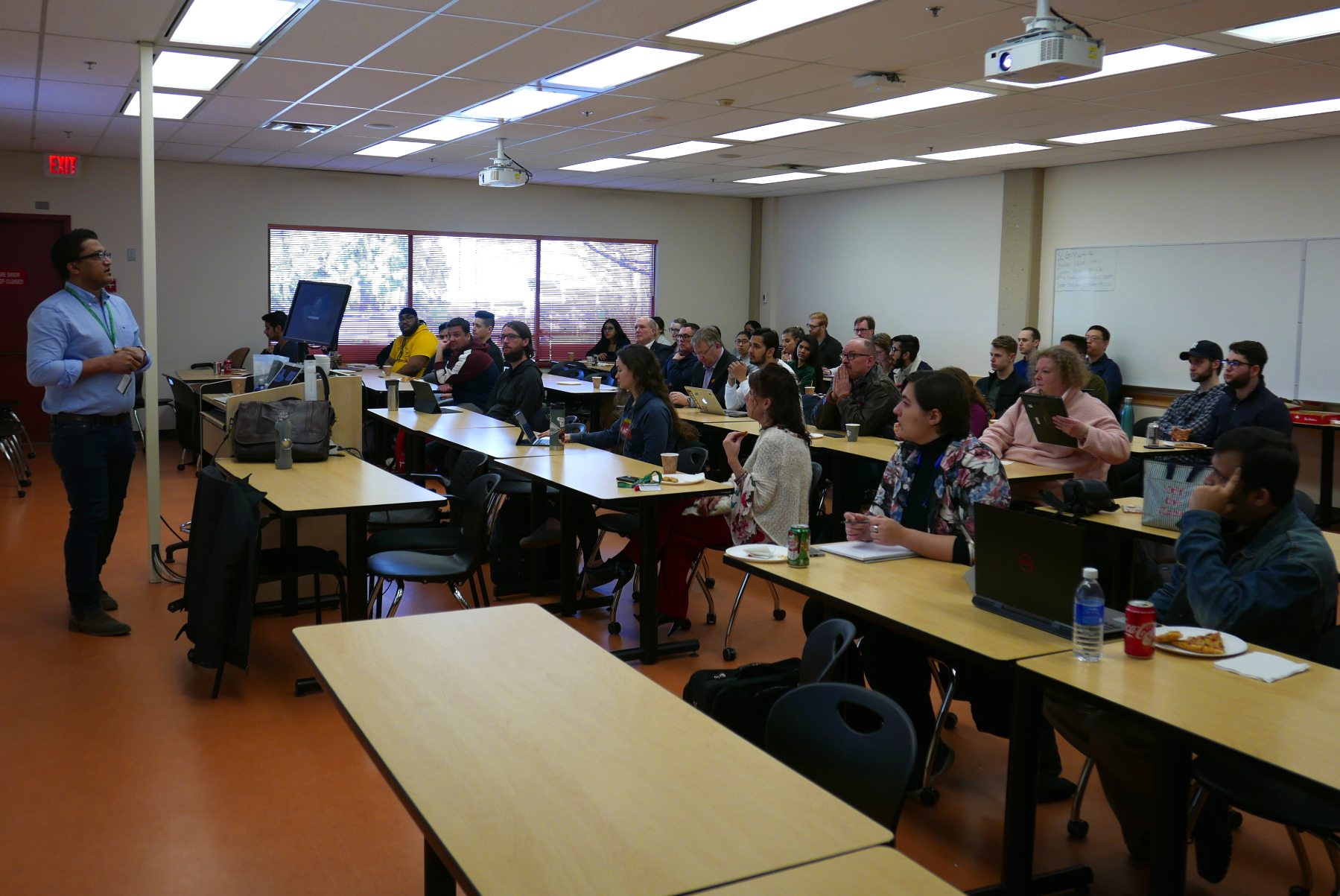Dr. Saeed Rahman spoke to a large group at Friday’s Seminar Series. Faculty, Staff, Administration, and the BUS 304 – Organizational Theory and Design class attended his lecture on, “Global Climate Change and the Emergence of Multi-Level Governance: The Role of Business, Non-Profit Organizations and Cross-Sector Alliances”.

During his presentation, Dr. Rahman emphasized how effective global climate governance entails establishing institutions, groups and policies, integrating climate change issues into the regular practice of government, and adapting current political and administrative systems to handle climate change mitigation and adaptation.
Though he proved that historically intergovernmental efforts to create effective global institutions in response to the threat of climate change, have largely failed to deliver. This failure has prompted a wide range of non-state actors (such as Greta Thunberg) and alliances to engage in institutional work toward creating and shaping new institutional arrangements and regimes.
His research, examined the shift from the traditional state-centric regime approach to a multi-level climate governance process driven by bottom-up orchestrated initiatives. The conceptual lenses of institutional work and regime theory provide insights into the nature of institutional voids and the processes by which state and non-state actors generate multi-level climate governance systems.
Discussion followed the lecture, with students and faculty alike seeking Dr. Saeed’s opinion on a variety of topics. Many students were interested to learn about what they could be doing to help create and shape these new institutions.

